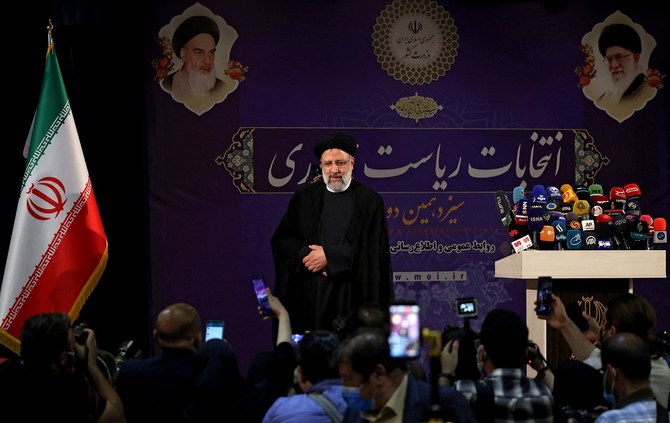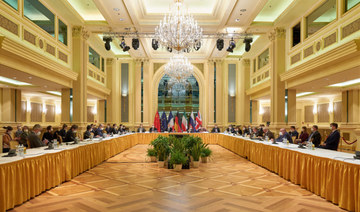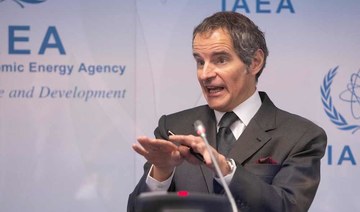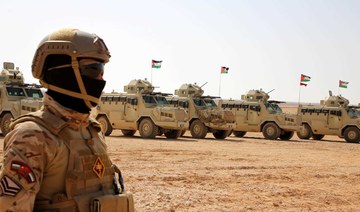ATLANTA: The approaching Iranian presidential election on June 18 has been “fixed” in favor of an unpopular candidate whose support from the Supreme Leader Ayatollah Ali Khamenei has made him the front runner, according to commentators.
On Tuesday, Iran’s the Council of Guardians, the 12-member council of senior religious clerics vetting presidential candidates, disqualified the majority of candidates who were reformists or moderates, leaving judiciary chief Ebrahim Raisi and several little known candidates in the running.
The Council of Guardians also approved secretary of the Expediency Council Mohsen Rezaei; former nuclear negotiator Saeed Jalili; deputy parliament speaker Amir Hossein Ghazizadeh Hashemi; former vice president Mohsen Mehralizadeh; central bank governor Abdolnasser Hemmati; and lawmaker Alireza Zakani.
Iran experts say that Raisi was implicated in the killing of several thousands of Iranian activists and political prisoners in 1988, a stigma that still haunts him. Nevertheless his chances of winning the election remain high.
The National Council of Resistance of Iran (NCRI), an opposition group based in Europe, said in an online briefing on Wednesday that Raisi will most likely win the presidency because he is favored by the Supreme leader. The group called the upcoming elections a “sham.”
Mohammad Mohaddessin, the NCRI foreign policy chief, said: “Khamenei specified the criteria for his favorite president, which fit Raisi perfectly. He has dispensed with the ‘moderate-hardliner’ theatrics to secure the presidency for his preferred candidate. In short, this time around, the election is a one-man show.”
Barbara Slavin, Director of the Future of Iran Initiative at the Atlantic Council in Washington D.C., told the Arab News that the upcoming presidential election is a “joke.”
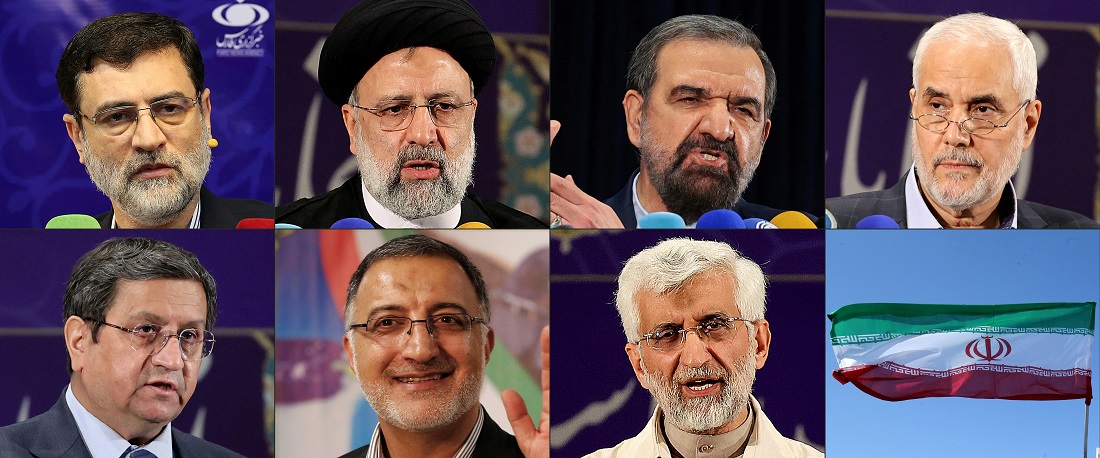
Top L to R: Iranian presidential candidate Amirhossein Ghazizadeh-Hashemi, Iranian judiciary chief Ebrahim Raisi, Irannian former chief of the Revolutionary Guards Mohsen Rezai, former Iranian vice president Mohsen Mehralizadeh, the head of Iran's Central Bank Abdolnasser Hemmati , conservative presidential candidate, Alireza Zakani, former top nuclear negotiator Saeed Jalili and the national flag of the Islamic republic.(AFP)
She said that because no one of note was allowed to stand in the elections other than Raisi, he seems to be almost guaranteed to win.
“Unless the Supreme Leader changes his mind and allows other credible candidates to run for the election, the turnout will be very low and it will be embarrassing for the government,” she said.
Slavin said that Raisi stands to win the elections because he is very close to Khamenei, who is looking to cement his legacy and may be grooming Raisi as his successor as the Supreme Leader.
The winner of the presidential election will have to handle negotiations with the US and other European countries to revive the Joint Comprehensive Plan of Action (JCPOA), more commonly known as the Iran nuclear deal, which the US withdrew under President Donald Trump.
Trump also imposed a strict economic sanctions against Iran that created severe financial and economic difficulties for the Islamic Republic.
Negotiations between Iran and the US and European countries are unlikely to bring immediate relief to the Iranian economy in time for Raisi’s presidency unless the US and Iran reach an interim agreement to either to revive the old JCPOA or initiate a framework for a new agreement.
However, it remains unclear how a Raisi government will conduct nuclear negotiations with the US and its allies, given its hardline credentials.



